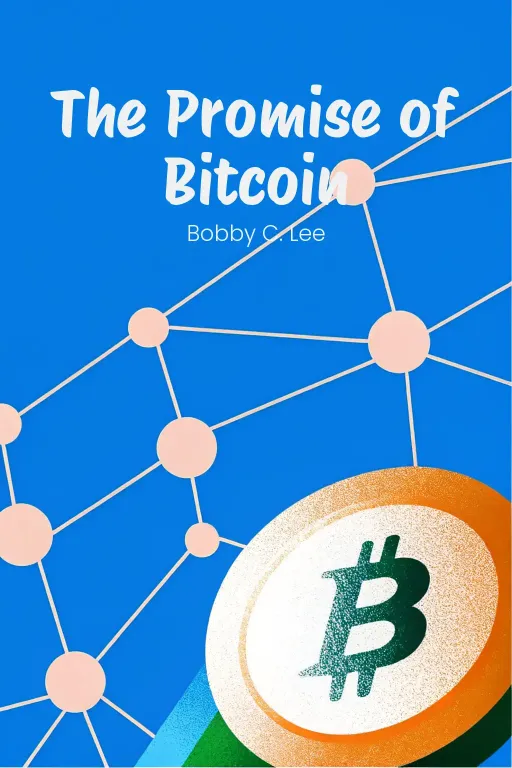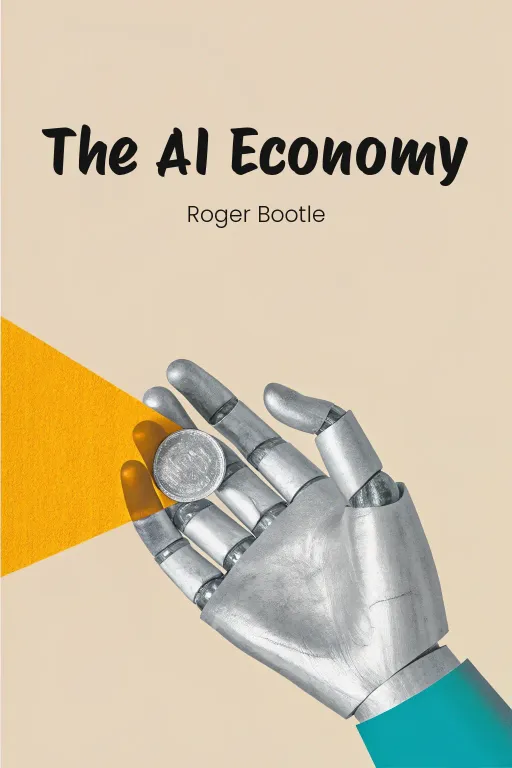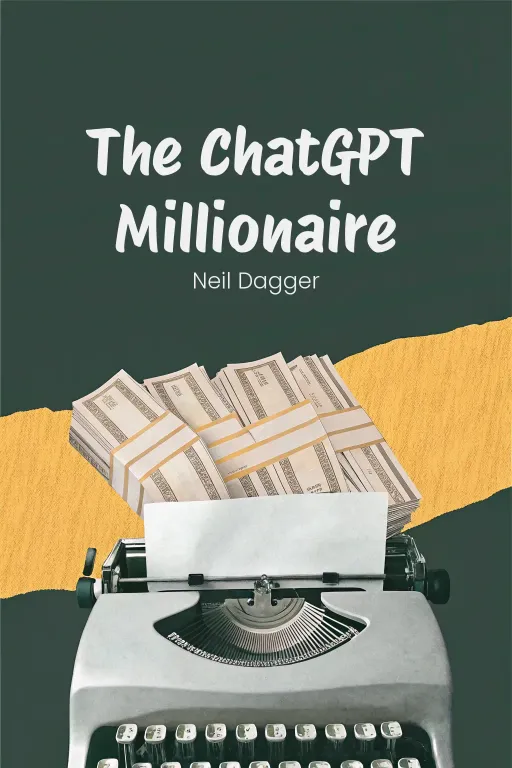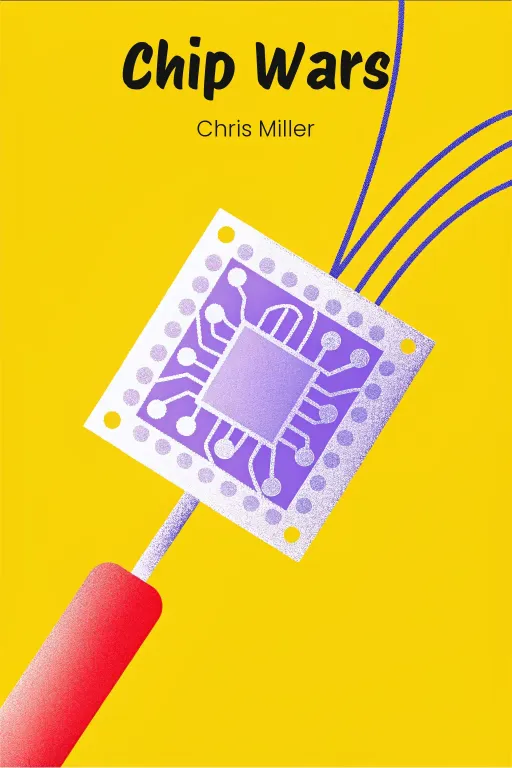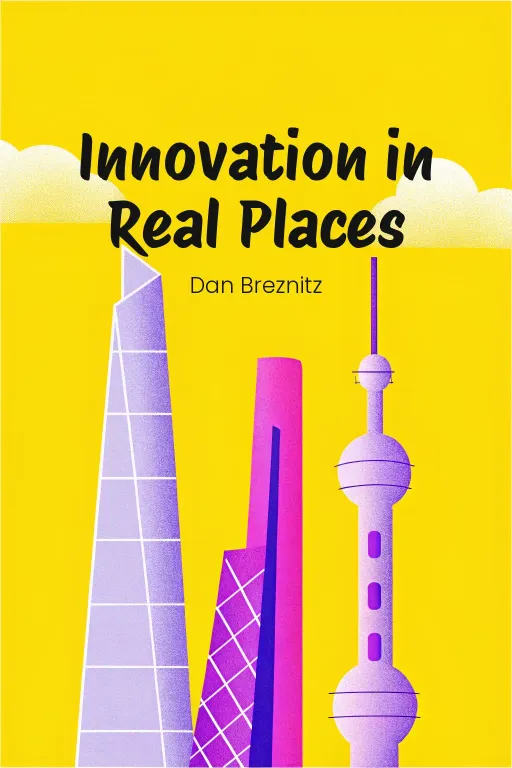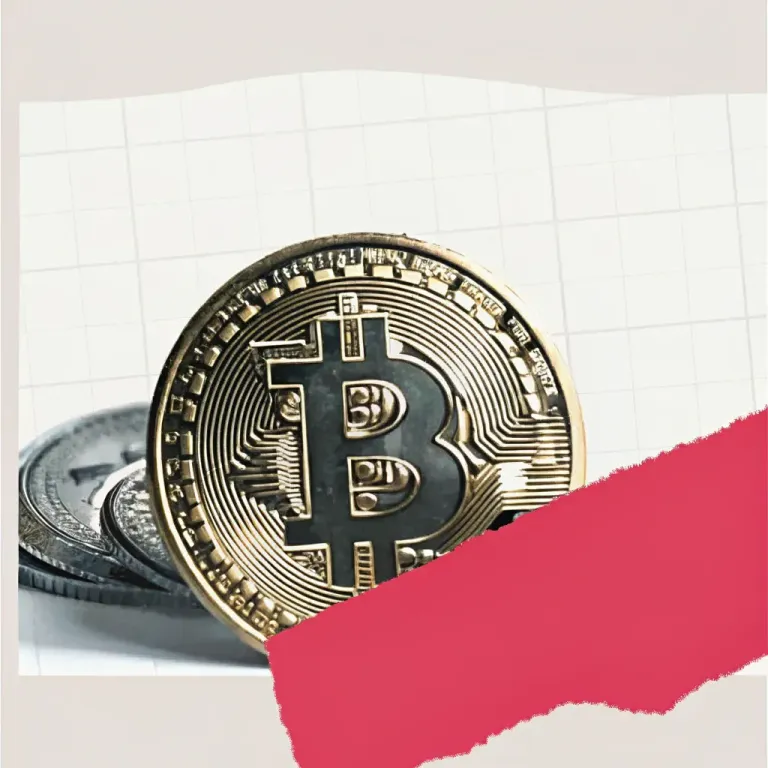
Bitcoin: Rethink Money, Reclaim Control
Podcast by Wired In with Josh and Drew
The Future of Money and How It Can Work for You
Introduction
Part 1
Josh: Hey everyone, welcome! Today we're jumping into something that's really changing the financial landscape: Bitcoin. Whether you're a tech whiz or just curious about what all the hype is about, this episode is definitely for you. Drew: Exactly. And let's be real, how often do we actually question the systems we use every day, like banks or even money itself? Bitcoin makes us rethink everything, from trust to what we value. It's interesting, but, uh, a bit unsettling, right? Josh: Totally. That’s where Bobby Lee’s book, "The Promise of Bitcoin," comes in. It’s part history lesson, part call to action, and part, well, philosophical exploration. Lee walks us through Bitcoin’s origins, breaks down why the traditional financial system often fails, and argues that Bitcoin could unlock a more inclusive, decentralized future. He also tackles the tough questions head-on, like volatility and regulation. Drew: Which leads us perfectly to today's plan. We're looking at Bitcoin from three key angles. First, how it's disrupting finance – I mean, how did it go from a niche tech project to a global thing? Then, we’ll get into how it could help people who are often left out. Because as good as it sounds, is Bitcoin really a digital savior for those without access to banks? And finally, we’re looking at challenges and possibilities for Bitcoin's future – you know, energy use, innovation, and global trust. Josh: Right. From its crazy start to the vision of a completely new financial system, consider today's episode your personal tour guide. We’re going to break it all down, analyze it, and maybe even rethink what we already believe. Drew: Oh, I’ll definitely be doing some of that rethinking, don’t worry. Ready to dive in?
The Evolution and Promise of Bitcoin
Part 2
Josh: Okay, let’s kick things off by talking about how Bitcoin got started. To really grasp its potential, we have to understand its origins. Back in 2009, someone—or some group—going by the name Satoshi Nakamoto introduced Bitcoin with a white paper called “Bitcoin: A Peer-to-Peer Electronic Cash System.” The document proposed this really groundbreaking idea: a decentralized digital currency that would run on blockchain technology. The real innovation here was the blockchain, which is basically a distributed ledger where every transaction is recorded, verified, and secured by the network, cutting out the need for a bank. Drew: So it's a bankless system, relying on tech for trust. Sounds pretty revolutionary, but… almost too good to be true? This “trustless” thing—because you don't need to trust a central authority—sounds like science fiction. But wasn't this idea partly a response to some serious financial mess, though? The timing is interesting, to say the least. Josh: Absolutely, Drew. Bitcoin's development was definitely influenced by the 2008 financial crisis. Think back to that time—people had lost faith in banks and financial institutions. Big banks were collapsing, governments were bailing out everyone, and regular people were the ones who suffered. Bitcoin was really a direct response to the weaknesses in that system, like centralization, manipulation, and a lack of transparency. Bitcoin was created to solve these problems. Drew: Okay, so Bitcoin is like a reaction, right? The rebellious kid born from the ashes of 2008! But, putting on my journalist hat here, Bitcoin claims to be a currency for everyone, but early on, it was mostly tech-savvy libertarians, anarchists, and privacy folks who were using it. Not exactly "the people," right? Josh: I get what you’re saying. In the beginning, yeah, it was mostly tech enthusiasts and those with very strong beliefs. But, it aimed to give financial freedom to individuals. The idea is to take control away from the banks and governments and empower individuals. Just look at the limited supply—only 21 million coins will ever exist. It basically has scarcity built in, unlike traditional currencies, which can be inflated by central banks just printing more money. In that sense, Bitcoin is much more like gold, which is actually a good segue into the history of money. Drew: Alright, the history lesson. Are we going from trading goats to blockchain technology? Josh: Exactly! To really get why Bitcoin matters, we have to look at how money has evolved. Early on, people just traded items directly – bartering. But it had limitations, of course, like if the other person didn't need your goat, you were out of luck. To fix this commodities like gold and silver started being used to represent value. They were durable, easy to divide, and pretty much everyone accepted them. Drew: So, these were the original real, tangible assets, huh? And unlike bartering, they allowed us to grow trade and protect wealth. But I bet this is where trust started becoming a factor, after we switched gold with paper promises. Josh: Exactly! Coins, and then paper money, came along, and suddenly, you needed to trust the central authorities to ensure their value... For example, China's Tang Dynasty actually came up with the first paper money way back in the 7th century. But with that control came problems. Governments would print too much money, causing hyperinflation. China is an example of exactly that, where reckless money printing in later years destroyed its financial system. Drew: Yeah, it’s a story that we've seen over and over. Zimbabwe or Venezuela are more recent examples, right? A fiat currency inflates like crazy. Josh: Exactly, and that’s where Bitcoin comes in. By cutting out central control over money, it’s trying to get back to the trust and scarcity of gold, but in a digital, global way. No single government or entity can mess with its supply. That's why decentralization is such a big deal. Drew: Decentralization sounds good, but there's a catch. While Bitcoin is supposed to be this network where no one's in charge, is that really how it works? I'm thinking about mining pools, for example. With large-scale miners grouped by geographies controlling the hash rate. How decentralized is decentralized enough? Josh: That’s definitely a valid point, and people debate this all the time. While mining can be somewhat centralized, the overall Bitcoin system is still remarkably decentralized. You've got thousands of nodes all over the world making sure no single player can change the rules. But let's go back to the importance of decentralization. Remember the banking crisis in Cyprus back in 2013? That was when Bitcoin really started turning heads. Drew: Ah yes, the "bail-in." The government seized people’s savings to save failing banks. Josh: They did, focusing on accounts holding above a certain amount. Suddenly, money that people thought was safe wasn't theirs anymore. Bitcoin offered a different path. If you held Bitcoin in a non-custodial wallet, the government couldn't touch it. This illustrated how Bitcoin could be a tool for financial independence and a safety net against government overreach. Drew: Okay, that sounds dramatic, but let me ask this. Cyprus is just one story. Maybe Venezuela is another. But can Bitcoin actually handle the needs of regular people during such crises? And, not everyone has the ability to use it as a safety net. Josh: True, affordability is a challenge we should discuss. But it seems like its role in equalizing the financial situation cannot be ignored. Particularly in regions where traditional systems just don't work for people. Think of the unbanked—1.7 billion adults, mostly living places like Sub-Saharan Africa, who don't even have a bank account! Many have smartphones but can’t access basic financial tools. Drew: So, Bitcoin is the great equalizer swooping in? Lower fees, borderless transactions—sounds good. But… and I hate to be so critical… doesn't needing the internet to use it create a barrier for those same people it’s trying to help, you know, especially in places with poor infrastructure? Josh: It’s a legitimate point. Poor infrastructure complicates things, but there are solutions emerging to deal with that. There are apps now that let you send Bitcoin through SMS, meaning you don't need the internet. Also, consider remittances. People who work abroad sending money home have to pay huge fees using services like Western Union. Bitcoin makes these transfers faster, cheaper, and more direct.
Bitcoin's Societal and Philosophical Implications
Part 3
Josh: So, we've talked about Bitcoin's origins. Now, let's get practical and look at how it's being used today. But even more importantly, let's dive into its potential impact on society and our philosophical understanding of money. It's not just about use cases like financial inclusion, but also about the ethical side of decentralized money. Envisioning Bitcoin as a way to empower individuals and, frankly, reclaim financial autonomy. Drew: That's a pretty big promise, Josh, and I'm curious to unpack it. Let’s start with financial inclusion because that's always touted as Bitcoin's main benefit. Giving financial tools to those excluded from traditional banking – it's a powerful idea. But first, can you paint a picture of just how big this problem of financial exclusion really is? Josh: It's huge. The World Bank says about 1.7 billion adults worldwide are unbanked, meaning they don't have access to even basic banking services. This isn't just a number; it represents real struggles caused by systemic issues like poverty, lack of infrastructure, and the high costs of traditional banks. Many of these people live in places like Sub-Saharan Africa, where simply opening an account can be too expensive or just not feasible. Drew: No savings, no loans, no easy way to send or receive money – that sounds like a trap that keeps people in poverty for generations. Josh: Exactly. Imagine trying to grow a small business in a rural village, but you can't save money safely or get a loan. Without these basics, it's almost impossible to improve your economic situation. That's where Bitcoin comes in. Unlike traditional banking, it doesn't need physical branches or minimum balances. All you need is a smartphone and internet, which, while not everywhere, are becoming more common even in underserved areas. Drew: Okay, I see that Bitcoin cuts out the middlemen – it's borderless and bypasses the traditional banking system. But let's be real, these populations still face hurdles. Internet access, for one. And then there’s the wild price swings. How can they trust a currency that can lose or gain 20% of its value in a single day? Josh: Those are valid points, Drew, and it's something that's still developing of course. The tools and infrastructure needed to make it easier to use are improving. For example, some startups are creating offline solutions, even allowing Bitcoin transfers via SMS for areas with poor internet. As for volatility, in places with crazy inflation like Venezuela, Bitcoin's long-term stability can actually be an advantage. Drew: Ah, right, Venezuela – Bitcoin's “I told you so” moment, right? Their currency became almost worthless with inflation hitting, what was it, a million percent? I remember reading about Venezuelans turning to Bitcoin to escape that mess. Josh: Exactly. It's a great example of Bitcoin's real-world resilience. People there used it to store value and to make essential transactions. Small businesses relied on it to import goods, avoiding the inflated local currency and government restrictions. Even with internet problems, Bitcoin proved more reliable than their own currency during that crisis. Drew: But Bitcoin's not just a safety net for crises, is it? I'm also fascinated by its potential for remittances. Migrant workers sending money home is a huge global financial flow, but it's often eaten up by fees. How does Bitcoin compare? Josh: Well, services like Western Union charge an average of about 7% to send money, according to the UN. For low-income families, those fees can be devastating, taking away from what they need for food, healthcare, or education. Bitcoin changes that. Transactions are faster, direct, and much cheaper, cutting out the middleman. A worker in the U.S. could send Bitcoin to their family in the Philippines, for example, avoiding delays and high fees. Drew: Okay, cheaper fees, got it. But here’s a quick question. Bitcoin might make these transfers faster and cheaper, but how easy to use is it for the people receiving it? A family in the Philippines still needs to convert it to their local currency to buy groceries, right? Does everyone need to become a tech whiz to use this stuff? Josh: Not necessarily. Businesses and local vendors in these areas are increasingly starting to accept Bitcoin directly, so people don't have to convert it. And, the Bitcoin community has created platforms that simplify the exchange between Bitcoin and traditional currencies, making it easier for people who aren't tech-savvy. Drew: Okay, I’ll give you that the infrastructure is improving. But another aspect that intrigues me is women's empowerment. Bitcoin is supposed to enhance financial independence, especially for marginalized groups. How does that hold up? Josh: It's a big deal. Women, especially in more traditional regions, often face systemic barriers to financial independence – cultural norms that limit their access to bank accounts, for example. Bitcoin bypasses those barriers and gives them secure, private control over their finances. Melinda Gates has talked about how empowering it is for women to have control over their finances. With Bitcoin, a female entrepreneur in rural Kenya could sell her crafts to an international audience and get paid without relying on male-controlled financial systems. Drew: That's truly transformative. But this brings up a philosophical question: If Bitcoin is about breaking barriers, are we redefining money itself as a basic human right? Josh: Exactly. That leads us to Bobby Lee's argument that money is a "natural right," like life, liberty, and property. Bitcoin, at its core, champions financial freedom as a universal right. Think about it: If you can't access or control your own money freely, are you really economically free? Drew: Hmm. That's where Lee's "freedom-of-money" test gets interesting. It makes us think about whether we really control our own money. He points out how even simple wire transfers can get bogged down in bureaucracy. I think most of us just assume we have full control, but these centralized systems quietly dictate the terms. Josh: Precisely. Lee's own experience with Wells Fargo highlights this. Even with plenty of funds, he faced restrictions and delays when trying to transfer his own money. It shows a dependency most of us don't even realize we have. Bitcoin bypasses this system, allowing users to transact freely without interference from banks or governments. Drew: But that interference isn’t always bad. Regulations and fraud protection exist for a reason, and Bitcoin doesn’t inherently guarantee those things. Decentralized doesn’t automatically mean safe. Josh: True, and regulations are something Bitcoin will have to deal with. But it has the potential to offer financial freedom to people living under oppressive regimes. Take Algeria, where cryptocurrency is banned outright. Even with those laws, Bitcoin allows people to protect their assets in ways the government can't easily seize. Drew: Bitcoin as a symbol of liberty? I like the idea, but there are still challenges – cultural, technical, and ethical. Promising empowerment is one thing, but scaling it without leaving vulnerable people even further behind is another. Josh: Those are fair points, Drew. Yet, even with its flaws, Bitcoin is a significant step toward a more inclusive financial system. Whether it's saving money on remittances, empowering women entrepreneurs, or protecting against government overreach, it's definitely making a statement for financial equity.
Addressing Criticisms and the Future of Bitcoin
Part 4
Josh: Now that we’ve looked at Bitcoin’s impact, let’s tackle the common critiques. It's really about the growing pains, you know? Misconceptions, security challenges, volatility... we can talk about how the ecosystem is dealing with these head-on. Then, we can look at the transformative possibilities for the future. Drew: Ah, the classic problem-solution. So, are we going to dive into the fears of Bitcoin being used for nefarious things, and then see how it tries to clean up its image? I'm intrigued. Josh: Exactly, Drew! Let’s start with one of the biggest fears: security, or rather, the idea of insecurity. People think, "If I lose my private keys, my Bitcoin's gone forever!" And that's a deterrent. While not totally wrong, it stems from Bitcoin's core principle: you're fully responsible for your finances. Drew: Financial responsibility or financial “doom”? "Lose keys, lose Bitcoin" sounds like the harshest security ever! No help desk, no password reset. Is there another side to it? Josh: Definitely. This “no safety net” highlights Bitcoin's autonomy. No intermediaries, no bank, no hacker accessing your funds. Users should, and are recommended, using hardware wallets, keeping keys away from cyber threats. Drew: Storing keys on a USB... doesn’t that create a new problem? Losing a wallet or Ledger feels like losing my fortune! Josh: True, but there are solutions! Many hardware wallets let you generate a recovery seed—a secured backup phrase that restores funds if the wallet is lost or damaged. People also split backups or encrypt them. Education and preparation are key. Drew: Okay, so private keys aren't doomsday with precautions. But what about the "51% attack"? Someone controlling over half of Bitcoin’s computational mining power, rewriting history, breaking the system... How likely is that? Josh: Theoretically possible, practically almost impossible. The network’s enormous. Its hash rate is measured in exahashes—quintillions of calculations per second. Over 50% requires astronomical financial resources and energy... beyond any realistic entity, even a nation-state. Drew: So, more of a Hollywood villain thing than a real risk? Like a Bond villain trying to hijack the global money system? Josh: Yeah, more fiction for now. And even if attempted the damage would be limited. The attacker couldn’t magically mint new bitcoins—they could only tamper with recent transactions. This resilience adds to why Bitcoin remains secure despite those hypothetical concerns. Drew: Okay, security aside, here's a reputation problem: its supposed criminal ties. "Bitcoin" makes people think: black markets, ransomware, dark web. Overblown, or does Bitcoin have a real crime problem? Josh: I'd say overblown, mostly media hype. Take the 2020 Twitter hack—scammers using compromised accounts to solicit Bitcoin. Coverage focused on Bitcoin, but the problem was Twitter's centralized security. Drew: So Bitcoin gets blamed because it was the medium in someone else's security mess? Josh: Exactly. The same blame game played out with the Mt. Gox collapse in 2014. The exchange lost 850,000 bitcoins, people blamed Bitcoin itself. But it was Mt. Gox's poor security. It wasn’t a flaw in Bitcoin's tech, but a lesson about safe platforms and storage. Drew: Right—but to the uninformed, scandals like Mt. Gox make Bitcoin seem unstable or unsafe. I bet those perceptions are why people are hesitant about its volatility. A currency that swings wildly isn’t a "safe haven," right? Josh: Bitcoin's volatility is a hurdle, especially for newbies. Adoption is still early. As any new asset matures, volatility stabilizes. Investors need to focus on the bigger picture. Historically, despite the rollercoaster—Bitcoin’s growth over the long term is exceptional. Drew: Even with swings, patience has been Bitcoin’s ally? Is that why we have "hodling?" Josh: Exactly! Hodling—holding during dips—is Bitcoin’s long-term thing. And strategies like dollar-cost averaging—investing a fixed amount regularly—further reduce volatility’s risks. It’s disciplined, smoothing out price fluctuations over time. Drew: I get it, but "staying cool" is tough. People panic when the value tanks. Remember when Bitcoin hit $20,000 in 2017 and then plummeted? How do you stay calm knowing you’ve just watched your investment tank? Josh: Not easy, no. Emotional discipline is super hard for any investor. Those who resisted panic-selling often got rewarded when prices rebounded. Volatility isn't a bug—it’s a “feature” of an emerging asset. And savvy investors see growth potential in that chaos. Drew: A “feature”, huh? That's... optimistic. But yeah, it sounds familiar. Tech stocks had a similar path—high volatility becoming broader adoption and stable valuations. Are we saying Bitcoin is on that same evolutionary path? Josh: Precisely. Like the internet revolutionizing communication and commerce, Bitcoin is an innovation in how we think about and use money. Its volatility reflects the growing pains of shifting to a decentralized future. We shouldn’t fear it, we can see it as Bitcoin’s path to maturity and acceptance. Drew: Okay, Josh, let’s zoom out from specific criticisms like security or volatility for a moment. What lies beyond these hurdles? If Bitcoin continues to overcome these challenges, what do you see as its ultimate role in reshaping global finance? Josh: I think Bitcoin will evolve into something bigger than a speculative asset. It’s carving a place as digital gold—an inflation-immune store of value, unlike fiat currencies. Over time, as adoption increases and scarcity becomes more evident, Bitcoin could grow into a financial centerpiece for both individuals and institutions, fundamentally changing how global wealth operates.
Conclusion
Part 5
Josh: So, Drew, we've really run the gamut today, haven't we? From Bitcoin's groundbreaking origins to its potential for empowering people financially, and even the security and volatility challenges it's up against. Ultimately, Bitcoin is making us rethink what money really is and how much we trust our current financial systems. Drew: It is, and look, I'm still a bit of a skeptic, but you can't deny the potential it has to fix some real problems. Whether it's empowering those without access to banks or challenging inflation, Bitcoin has definitely started a global conversation. Josh: Absolutely, it's a game-changer. But, of course, it's not all smooth sailing. We talked about the security issues, the misunderstandings, and the scaling problems that are still major hurdles. But, you know, the big picture—a financial system that's decentralized and inclusive—that's something really worth striving for. Drew: Right, and it's something we have to approach with our eyes wide open. Just because it could be amazing doesn't mean it will be, especially when you're dealing with technology and, well, human nature. Josh: Couldn't agree more. But maybe that's what's so fascinating about Bitcoin. It's not just about the tech. It's a social experiment that's pushing us to ask some really important questions about autonomy, fairness, and what progress looks like in the digital world. Drew: Exactly. So, here's what we want our listeners to chew on: Forget the hype for a minute. Do you see Bitcoin as a genuine revolution, or just the next step in how money evolves? And more importantly, what could all of this actually mean for you? Food for thought, right?


